Let's start with "reading down" which refers to reading books below your age level. I read a ton of books that are not really targeted at 37 year old soccer moms. A lot of these I read for work, because I need to know what to order, what to recommend, and what is popular. I also read a substantial amount of fiction intended for younger people because I like to know what my kids are reading.
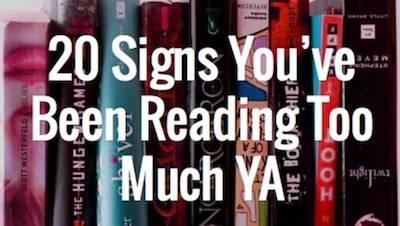 Ok, I'll confess. Juvenile and young adult (YA) fiction can also be a fun and relaxing change of pace, and I am quite certain that I am not the only adult who thinks so. Go ahead and admit it. You read Harry Potter, The Hunger Games, Divergent, etc.
Ok, I'll confess. Juvenile and young adult (YA) fiction can also be a fun and relaxing change of pace, and I am quite certain that I am not the only adult who thinks so. Go ahead and admit it. You read Harry Potter, The Hunger Games, Divergent, etc.Every once in a while I do need to throw in an adult book, just to remind myself that I am a grown up (and, more importantly, prevent any of these signs from manifesting).
The reading down phenomenon could help explain why so many popular adult authors (John Grisham, James Patterson, Michael Chabon, Kathy Reichs, to name a few) are now delving into the world of YA and juvenile fiction. It is definitely the reason the library still has a waiting list for the Divergent books.
On the one hand, I grew up similar to Melissa Taylor from Imagination Soup. I was a voracious reader as a child and my parents allowed me to choose books with absolute impunity.
I moved on to adult books for a couple of reasons.
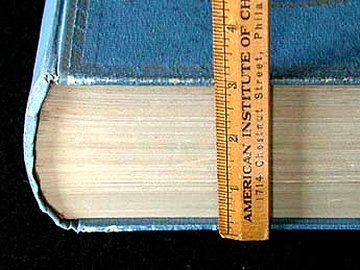 1. First of all adult books were usually thicker so they took longer to read. Really thick books were especially important for long car rides, family vacations, and my sister's basketball games (that my parents forced me to attend).
1. First of all adult books were usually thicker so they took longer to read. Really thick books were especially important for long car rides, family vacations, and my sister's basketball games (that my parents forced me to attend).2. Back then (you know way back in the 80s) there were not many authors writing teen fiction and those that did seemed to focus on topics suitable to an after school special. Don't get me wrong Judy Blume, Paula Danziger, Cynthia Voight etc. are amazing authors, but I was just never all that interested in books about high school drama. Honestly, wasn't it bad enough to have to live through all the crap without reading about it in your spare time? Please don't hate me if The Cat Ate My Gymsuit, Deenie, or any of the Sweet Valley High series were amongst your favorite books. Realistic teen fiction was just not my cup of tea. I had an unusual penchant for classic mysteries by Agatha Christie and Rex Stout and thrillers by Dean Koontz and Stephen King.
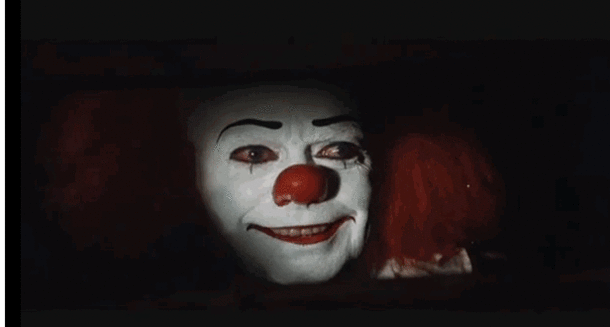 |
| Who can blame me for my clown phobia!!! |
I know that I read books when I was younger that had mature content and sometimes it went over my head and sometimes it didn't and probably should have. Not to mention, I am still deathly afraid of clowns after reading IT in the fifth or sixth grade.
It isn't just violence, sex, or bad language that we should be concerned about. Many teen and adult books have deeper emotional, political, and/or historical themes that younger kids aren't mature or experienced enough to fully comprehend. I am specifically thinking of all the recent teen books that have been made into films that kids in 3rd or 4th grade are asking to check out: The Hunger Games, The Maze Runner, The Book Thief, Divergent, to name just a few.
The book lover in me is thrilled because they want to read the book, because I think the book is almost always better than the movie (you can read a former post of mine to see some of the rare exceptions). Even decent movies derived from books leave out scenes, characters, and other details and the images can never truly compare to the ones in your imagination.
However, are young kids ready to read about the holocaust as narrated by death? Can they comprehend the socioeconomic and political strife in The Hunger Games or are they just going to cheer on every death in the arena. Side Note: When I went and saw this movie in theater it was kind of disturbing how many tweens and teens were hooting and hollering for every kill that took place in the arena. I am pretty sure that they were missing the point.
I am a habitual book re-reader. I love to go back and read books that I read when I was younger or even ones that I read less than five years ago. It is always interesting to see how my opinions and ideas have changed and what new insights I have now that I am older and (hopefully) somewhat wiser. Not everyone likes to do this, though, and I think that by reading certain books too early you can really miss out. The Lord of the Rings trilogy was a completely different reading experience in my thirties then it was when I was barely double digits.
By reading adult books too early, kids may also be missing out on a lot of wonderful children's books. I am 37 and I still like to read children's books. If you are a parent trying to challenge an advanced reader many of the classic children's books like The Incredible Journey, The Secret Garden, The Chronicles of Narnia and countless others are actually more challenging than a lot of teen and adult fiction. Yes, they may be a bit harder to sell to a ten year old than The Hunger Games, but at least you do not have to worry about content that is too mature.
 Despite everything, though, I think that adults often underestimate the intelligence of a lot of kids. I have come across a number of precocious readers (my own son and especially my daughter included) and they exhibit a remarkable ability to self-censor. Now when I say censor I do not mean refusing to read certain books because of religious reasons or parental influence. Rather, when a book becomes more than they can handle, for whatever reason, they ask for guidance, skip portions that bother them, or even discontinue reading it all together.
Despite everything, though, I think that adults often underestimate the intelligence of a lot of kids. I have come across a number of precocious readers (my own son and especially my daughter included) and they exhibit a remarkable ability to self-censor. Now when I say censor I do not mean refusing to read certain books because of religious reasons or parental influence. Rather, when a book becomes more than they can handle, for whatever reason, they ask for guidance, skip portions that bother them, or even discontinue reading it all together. My daughter was reading the Quarantine trilogy by Lex Thomas. In the book an entire high school is sealed off from the outside world when the teenagers become carriers of a virus deadly to adults and young children. Yeah the idea that the only immunity to this virus is puberty is a tad far-fetched. The school turns into Lord of the Flies meets Clockwork Orange meets American Psycho. By time Zoe made it through the second book she said that she was done because it was too bloody, too much boy/girl stuff (her words), and the characters were all horrible. I have seen other kids have the same reaction to books that were maybe too scary, too gory, too much romance, etc.
My daughter was reading the Quarantine trilogy by Lex Thomas. In the book an entire high school is sealed off from the outside world when the teenagers become carriers of a virus deadly to adults and young children. Yeah the idea that the only immunity to this virus is puberty is a tad far-fetched. The school turns into Lord of the Flies meets Clockwork Orange meets American Psycho. By time Zoe made it through the second book she said that she was done because it was too bloody, too much boy/girl stuff (her words), and the characters were all horrible. I have seen other kids have the same reaction to books that were maybe too scary, too gory, too much romance, etc.As much as the mom in me wants to keep kids little kids, I probably lean toward allowing them to read whatever they want. That doesn't mean I won't offer a warning if I think a book is scary, violent, or going to make them cry buckets. Above all, though, I think kids should be given the leeway to choose a variety of books in a variety of genres: classics, mysteries, science fiction, dystopian, etc. How else are they going to find what they love?
Whether you want to have veto power over every book your child selects or you give them free reign it is still a good idea to know what they are reading. Kids that enjoy reading, no matter how introverted or shy, become incredibly talkative when they are asked their opinions about books. So before you snatch away a book that you deem questionable ask why they chose it and what they think about it so far.

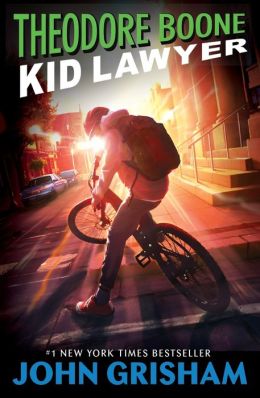
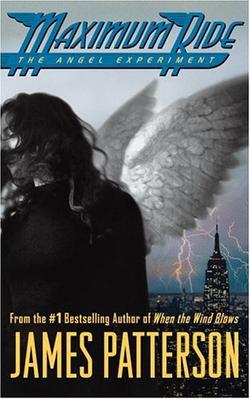





No comments:
Post a Comment